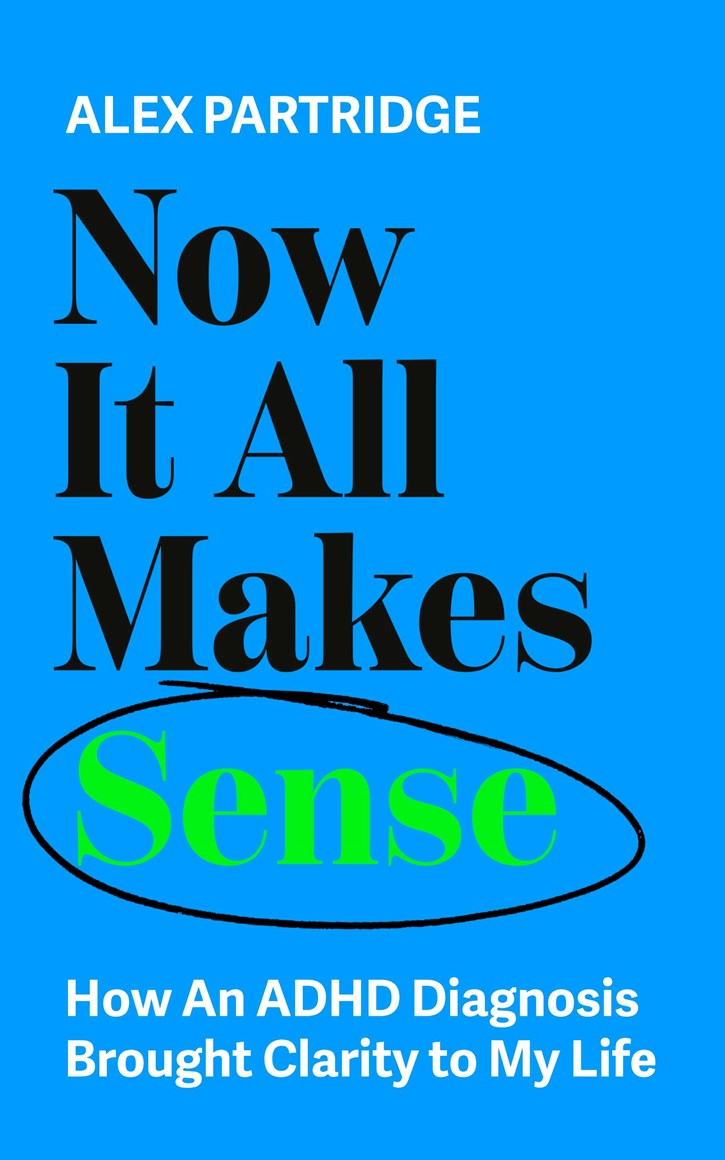An Excerpt from Now It All Makes Sense

Alex Partridge had long struggled with feeling different from his peers without fully understanding why. A chain of events starting in his early twenties—founding a popular digital media platform, getting embroiled in a legal battle over the site's ownership, and struggling with ensuing mental health issues and alcoholism—culminated when he was 34 years old and received his diagnosis of attention deficit hyperactivity disorder. With this new knowledge, he could look back on the past three decades of his life with greater clarity and empathy for his younger self.
In his new book, Now It All Makes Sense, Partridge shares his personal experiences combined with insights from mental health experts to help others understand how to live and thrive with ADHD. In this excerpt, Partridge discusses the unique and often overlooked strengths that individuals with ADHD can bring to their workplaces.
◊◊◊◊◊
In 2016, I worked at a marketing agency. There was loud music, a table tennis table and an office dog. Sounds fun? Nope. Sensory nightmare. The constant ‘pinging’ noise from the table tennis ball made it impossible for me to focus, not to mention the music and the smell of wet dog farts.
I was hired with high expectations. I was the LADBible guy. So my inability to focus caused me a lot of anxiety, as I knew I wasn’t meeting those expectations. I left that marketing agency after two months. I had grown their Facebook following to around 5,000.
Six months later, I joined another agency. But drawing on my last experience, I said:
Please let me work from home sometimes.
Please judge me on my outcome, not my process.
When I’m in the office, please let me work downstairs in the quiet canteen.
But most importantly: please trust me.
They said ‘yes’. Three months later, their Facebook following had grown from zero to 8 million.
Simple accommodations can make a huge difference.
My outcomes are consistently high, but my processes are never consistent. One day I might get absolutely nothing done. Another day, I might get four hours of work done at a random time of the day. Another day, I might get 40 hours of work done in four hours. On another day, I might get hyper-focused at 4 p.m. and stay in the office until midnight. ADHD makes my processes unpredictable, but it makes my outcomes outstanding.
Employers should always judge people on their outcomes, not their processes.
How to explain ADHD to your boss
Making the decision to disclose any medical condition to your boss should be carefully considered, with the potential risks weighed against the potential benefits.
For me, the main risk has always been a lack of understanding within the organization, which can lead to discrimination or bullying. In situations like this, I always rely on my intuition to inform me whether or not I’m in a safe environment to disclose my diagnosis or to ask for help.
Is the company putting out signals that suggest they are open and willing to accommodate ADHD? Are those signals genuine or are they simply ticking a box? Has my company brought in neurodivergent speakers and generally made an effort to educate the people within the organization about neurodiversity? Is their website accessible for those with a hidden disability and do they have a clear accommodations policy? Have I witnessed any hurtful communication on the topic of neurodiversity?
Our heightened intuition, combined with the observable evidence, will give us a clear indication as to whether we are in a safe environment or not.
A conversation with a colleague
I once disclosed my ADHD to a colleague and they immediately said, ‘Is that why you’re late sometimes?’
I said, ‘Yes, but it’s also the reason my intuition can warn you that the person you’re having that business meeting with is trying to screw you over.’
I have amazing pattern recognition, which means I’m amazing at predicting future trends.
I’m entrepreneurial, which means I’ll think like a CEO and you’ll benefit from having another out-of-the-box thinker within your organization.
I’ve got great conversational skills and I’m a super-fast thinker, which will be an asset to you at any negotiating table.
So yes, my ADHD is the reason I’m late sometimes, but it’s also the reason I forget to take my lunch break, so it balances out.
The colleague looked at me in amazement and said, ‘That makes a lot of sense.’
ADHD in the workplace can be a massive strength. Unfortunately, too many business owners still think that ADHD is a problem. It’s pure ignorance built on old-fashioned stigmas and stereotypes. ADHD can be challenging, but polls show that neurodivergent employees have many strengths, such as creativity, innovation and focus. These strengths, however, are often hindered by a lack of workplace accommodations.
An ADHD mind might think outside the box, spot patterns and trends, spot gaps in the market and find unique and cost-saving ways of solving problems.
Having ADHD minds within your organization will give you a fresh perspective, a new way of thinking and a competitive advantage.
Putting accommodations in place is the best investment a company can make. Those simple accommodations will enable the ADHD mind to deliver results which will make the cost associated with the accommodations shrink into insignificance. It’s about time we forgot about old-fashioned, outdated stereotypes and recognize ADHD as a strength in the workplace.
Excerpted from Now It All Makes Sense: How an ADHD Diagnosis Brought Clarity to My Life by Alex Partridge. Copyright © 2025 Sheldon Press. Reprinted with permission. This article may not be reproduced for any other use without permission.



